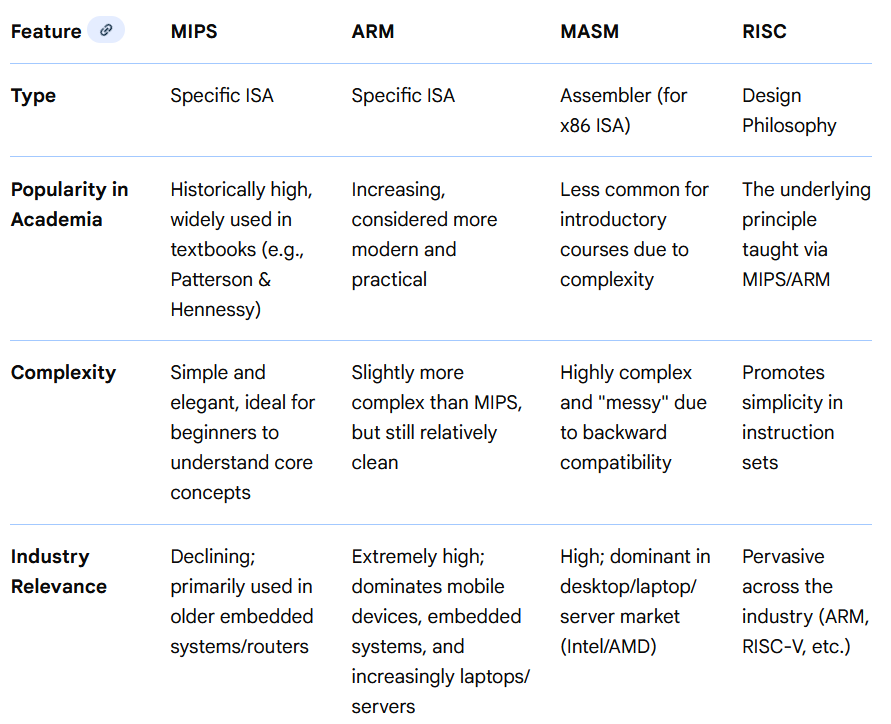Four popular assembly languages are currently available:
- MIPS (Microprocessor without Interlocked Pipelined Stages),
- ARM (ARM (Advanced RISC Machine),
- MASM (Microsoft Macro Assembler), and
- RISC (Reduced Instruction Set Computer).

The major reason that we use MIPS is because the textbook uses it. Without using it, the textbook becomes difficult.
|
“A bank is a place that will lend you money if you can prove that you don’t need it.” ― Bob Hope on banks |